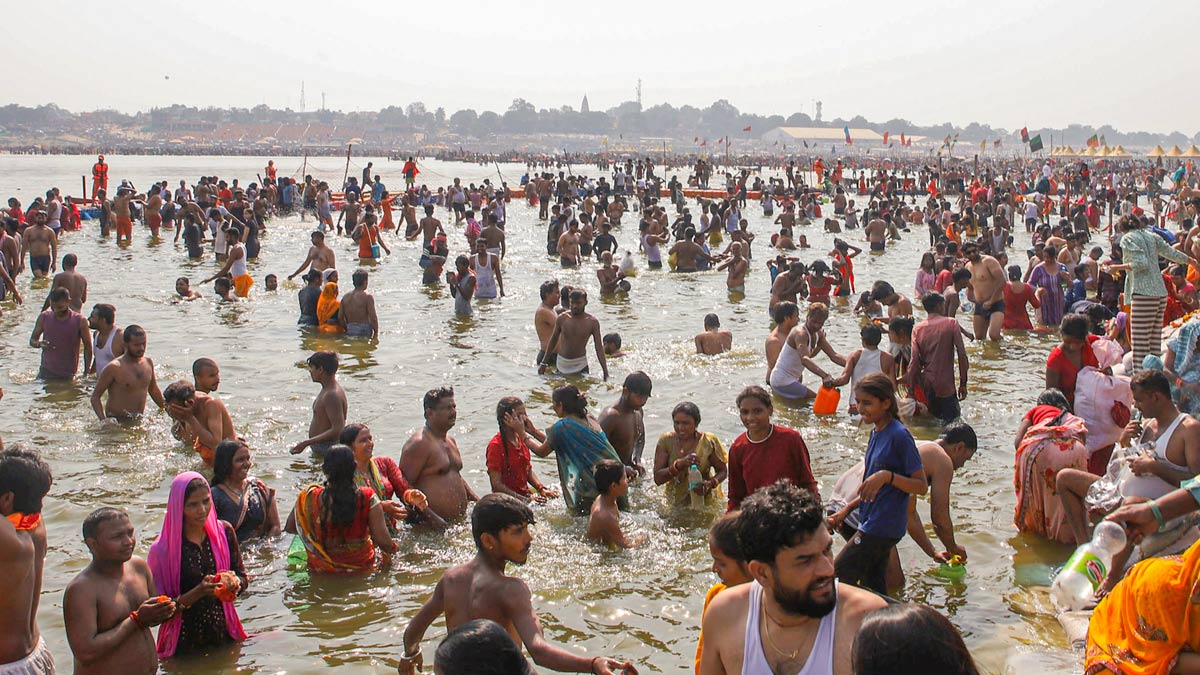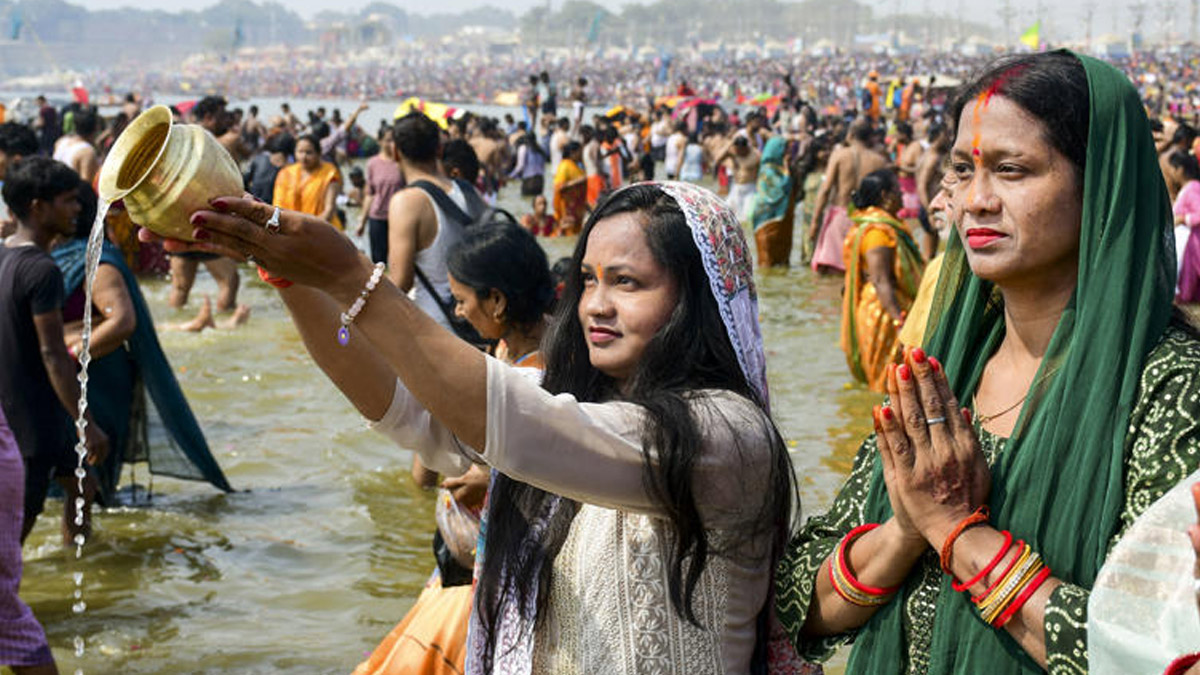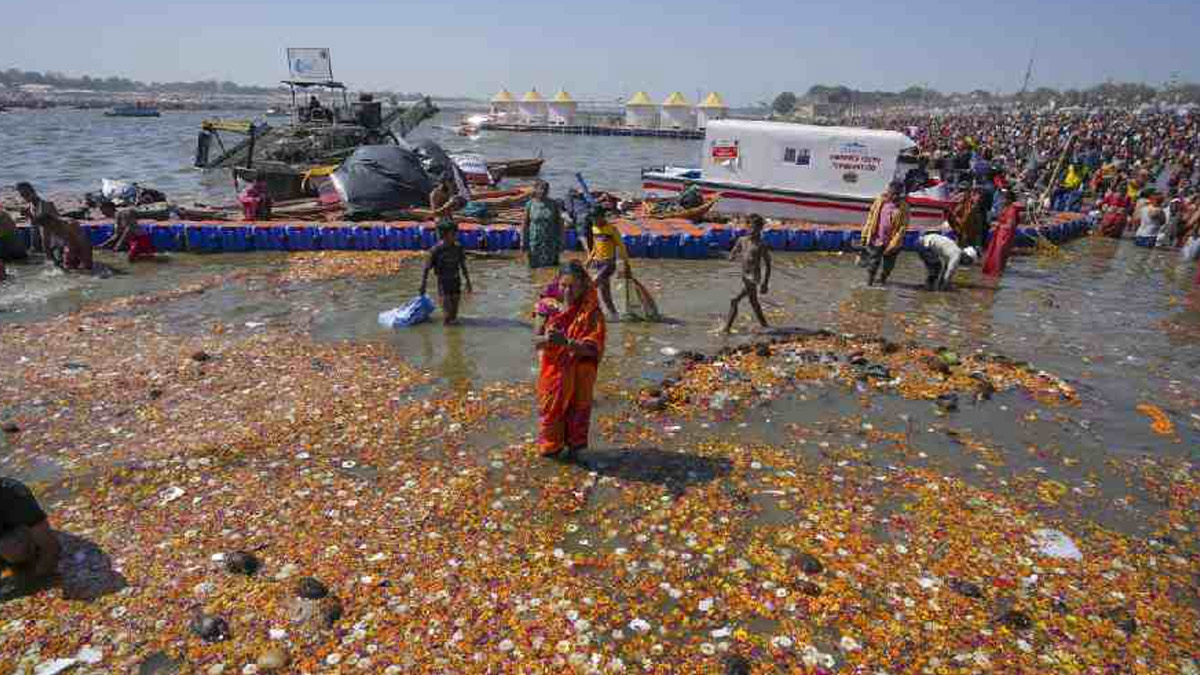
The belief that the Ganga River possesses self-purifying properties due to the presence of bacteriophages has come under scrutiny. Renowned hepatologist Dr Cyriac Abby Philips, widely recognized as The Liver Doc on social media, has strongly challenged these claims, warning that bacteriophages may indicate contamination rather than purification.
Table of Content:-
Debunking the Myth of Ganga’s 'Self-Purification'
A recent study suggested that the Ganga River contains around 1,100 types of bacteriophages—viruses that selectively attack bacteria—claiming this as evidence of the river’s natural ability to cleanse itself. Scientist Dr Ajay Sonkar, who conducted the study, referred to these bacteriophages as the river’s “security guards,” arguing that they eliminate harmful bacteria introduced by millions of devotees who bathe in the river, especially during religious gatherings like the Maha Kumbh Mela.

However, Dr Philips took to X (formerly Twitter) to refute this idea, emphasizing that bacteriophage presence does not equate to cleaner water. He compared the argument to suggesting that sewage water is safe to drink simply because it also contains a large number of bacteriophages.
Also Read: High Levels Of Faecal Bacteria Detected In Ganga During Maha Kumbh As Lakhs Take Holy Dip
Bacteriophages: Indicators of Contamination, Not Purity
Dr Philips clarified that bacteriophages are commonly found in environments with heavy bacterial contamination, including sewage water. He stated that their presence in Ganga water is not a sign of purity but rather an indicator of fecal pollution.
“Bacteriophages are promising tools for detecting fecal pollution in water sources and assessing risks associated with viral pathogens. Their existence in water is not proof of purification but rather a warning sign of contamination,” he explained in his post.
Also Read: Reduce Edible Oil Intake By 10% For A Healthier India, Urges PM Modi—Appoints 10 Fitness Icons
According to research, bacteriophages rapidly reproduce—each generating 100-300 new ones within a short period—creating a continuous cycle. While some proponents argue that this ensures a form of natural purification, Dr. Philips dismissed the claim, asserting that bacteriophages alone cannot neutralize all harmful pathogens in the water.

Potential Risks of Bacteriophages in Water
While bacteriophages have been studied for their potential in medical treatments, their impact on human health remains a subject of debate. Experts warn that bacteriophages can sometimes introduce new genetic material into bacteria, potentially increasing antibiotic resistance or creating more virulent bacterial strains.
Dr Philips cited scientific studies that highlight the role of bacteriophages in monitoring water quality rather than purifying it. “To simplify, the presence of bacteriophages in water does not mean the water is cleaner. Instead, they are used as markers to detect fecal contamination and gauge the effectiveness of water treatment processes,” he wrote, referencing a study from the Journal of Applied Microbiology.
What Are Bacteriophages?
Bacteriophages are viruses that specifically target and destroy bacteria. While they occur naturally in many ecosystems, their presence in water sources is often linked to contamination from sewage or human waste. Many bacteriophages are associated with gut bacteria, making them reliable indicators of fecal pollution in water bodies.
Public health experts caution against interpreting their presence in Ganga water as a sign of cleanliness. Instead, they recommend improved wastewater management and pollution control measures to ensure safer water quality.

Bottomline
The debate over the Ganga’s so-called self-purification highlights the importance of basing public health policies on scientific evidence rather than traditional beliefs. While bacteriophages play a role in microbial ecosystems, their presence should prompt concerns over water safety rather than be celebrated as a sign of purity.
As Dr Philips and other experts continue to push for factual clarity, it remains crucial for authorities and the public to acknowledge that true water purification requires effective sanitation and treatment—not just naturally occurring viruses.
Also watch this video
Read Next
Reduce Edible Oil Intake By 10% For A Healthier India, Urges PM Modi—Appoints 10 Fitness Icons
How we keep this article up to date:
We work with experts and keep a close eye on the latest in health and wellness. Whenever there is a new research or helpful information, we update our articles with accurate and useful advice.
Current Version
